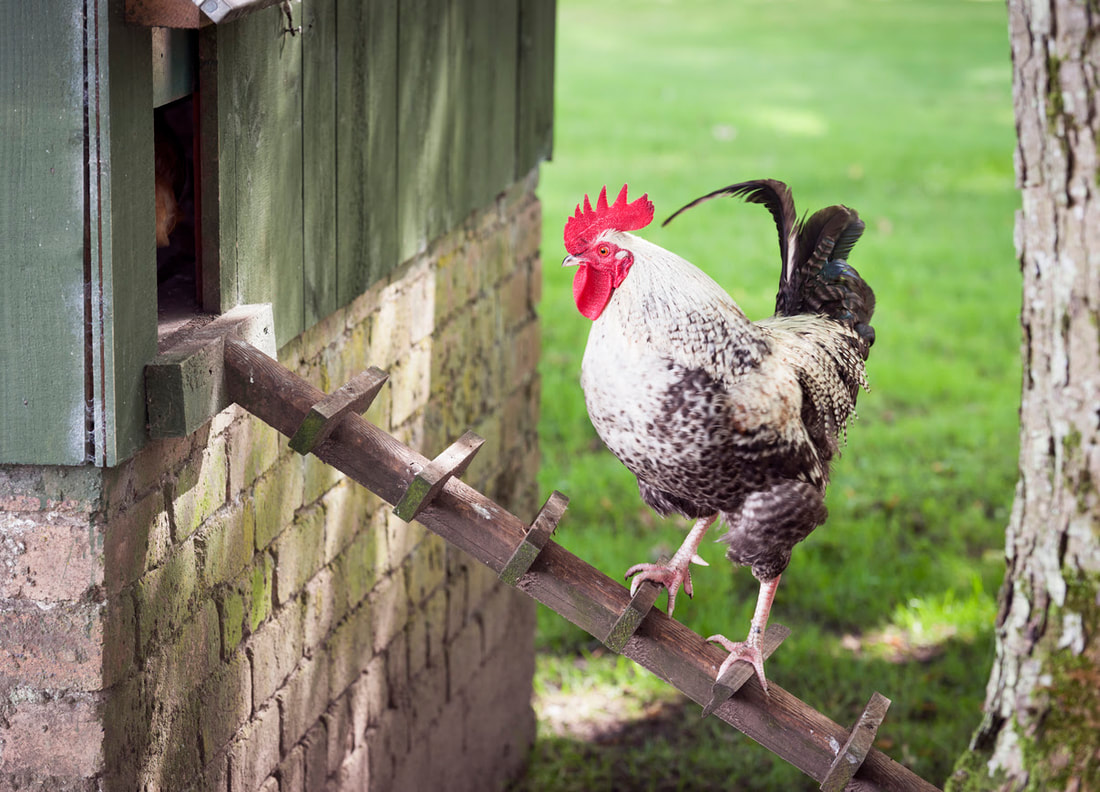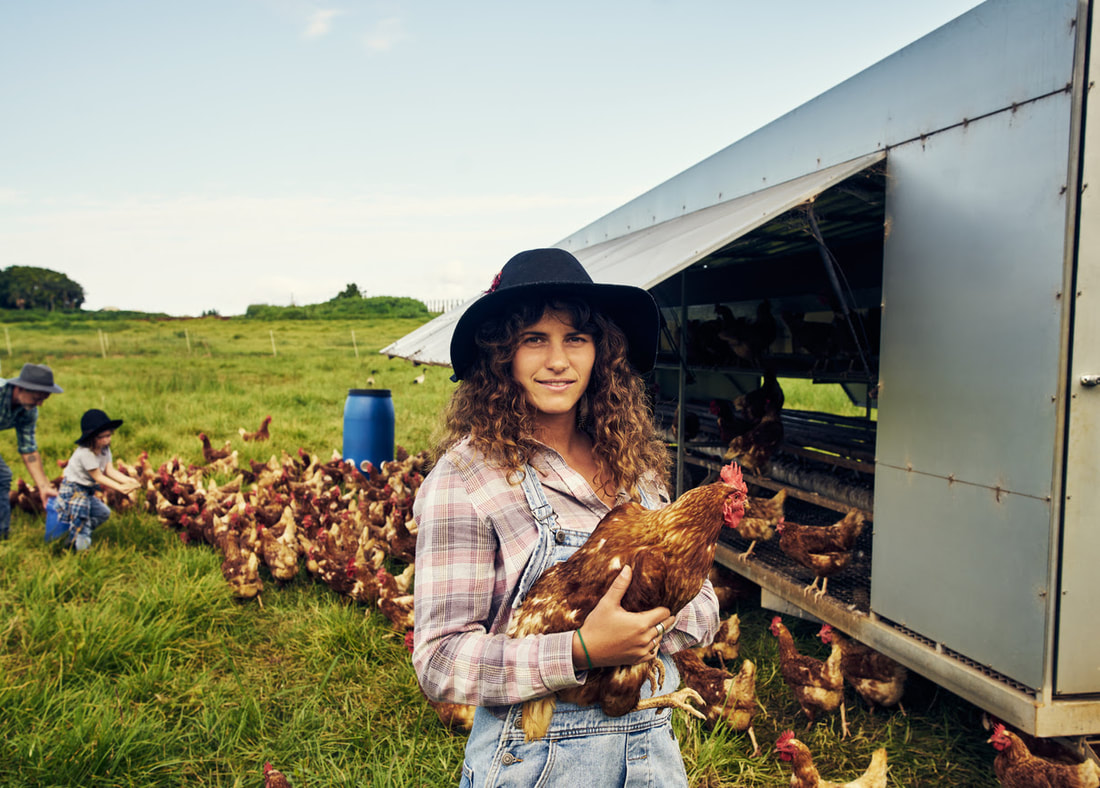|
Do you own several hens and are thinking about adding a rooster to your flock? Maybe you don't have any chickens, but you just loving having a handsome rooster strut around your barnyard. Here are a few of the basic pros and cons for adopting a rooster, along with some considerations and warnings.
Benefits of Owning a Rooster Roosters offer several benefits, including:
Disadvantages
Introducing Your New Rooster Before introducing a new rooster to your hens, wait about two weeks, keeping him separate from the chickens. This lets you look for any possible health problems that he may have, and gives you time for handling his temperament. While your rooster is being housed in a separate pen that is in viewing distance for the other barnyard animals, he and the chickens can watch one another interact. Then, after your rooster seems to be acclimated to the hens, let him out of his pen, so he can join the others. Food, Water, and Housing Requirements for a Rooster Roosters consume both plan and animal foods. Feed them a complete diet as found in feed store products. Replace the water trough daily, making sure drinking water is not too cold or too warm. Don't let your rooster drink puddle water as it may contain dangerous pollutants. It is best to let your rooster have its own sleeping quarters in a separate wire cage, when it's not enacting or mating with hens. If you are raising roosters for showing in competitions, such as fairs, keep them in a smaller pen that is about two feet wide by three feet long. Just ensure it is located in a warm spot since there are not other birds to help it stay warm. Other Considerations and Warnings
To learn more about how to care for hens and roosters, visit us at Popworms.com for tips and treats!
0 Comments
Chickens are pretty amazing and unique animals which inspire curiosity both in folks who own them and those who don't. These are some of the most frequently asked questions about chickens.
1. How many eggs does a chicken lay? The number of eggs most chickens lay depends on the care you provide and also on their breed. Some chicken breeds can give you up to 300 eggs per year, while others may only give 50-60 per year. 2. Do chickens come home to roost? True to the legend, your chicken can walk all through Texas, Kentucky, and Tennessee but rest assured that she will be back at your brooder by sunset. Chickens are very loyal and intelligent creatures. 3. When do chickens start laying eggs? Egg-laying varies by breed, but most chickens will start laying eggs at around five months of age and keep doing so for the rest of their lifetime if good care is given. 4. What predators should I be watching out for? Raccoons, being smart and intelligent animals, are the greatest threat to your backyard chicken-second only to the human being who occasionally eats chickens. Simple safety practices will keep your chickens safe from predators such as raccoons, eagles, and hawks. 5. How long do chickens live? If you give them the care they deserve, you will have your chickens roaming around your backyard for 7 to 15 years. Different breeds have different lifespans, but it is vital to understand that the longevity of your chickens depends on how well you care for and how happy and active you keep them. 6. Are roosters needed for chickens to lay eggs? Unlike humans, chickens had 1st, 2nd, and 3rd wave feminism inbuilt and don't need a male to lay eggs. However, it is not all doom and gloom for the rooster as he is required for the eggs to hatch. 7. How much attention do chickens require? Despite being lovely, chickens require pretty low maintenance. Chickens mostly go about the backyard minding their own business. Apart from routine food, watering and egg collection, your chickens will do just fine. 8. What do different egg colors mean? Egg color depends mostly on the breed and does not signify taste or quality. The feed and care the chickens are given determine the quality of the eggs. 9. When should I let my chicks outside? It is a general rule of thumb to let your chickens outside when they are well feathered. It is advisable to let your chicks out at about 5-8 weeks. 10. Why do roosters crow? Your guesses here were probably correct. The crow is alarm clock 1.0, and roosters crow as a response to an internal body clock, and also a response to stimuli such as people walking around or cars approaching. Here at PopWorms!, we are a family dedicated to providing quality treats for your chickens. We hope this post answers some of your nagging questions regarding chickens. But, please also check out our other blog posts, and great products that will help keep your chickens happy! Shop our selection of products and use promo code "KC" to receie 25% off orders of 1lb bags of PopWorms! ECO or PopWorms! PRO! Hurry, because this offer is valid only until February 16, 2020! |
PopWorms!®
|
|
Site Map
|
Products
Dry Products
PopWorms!® ECO Popworms!® ECO Bulk PopWorms!® PRO Live Products PopWorms!® LIVE PopWorms!® Leftovers |
Shipping
Site-wide
Free Shipping Over $25 |


 RSS Feed
RSS Feed


